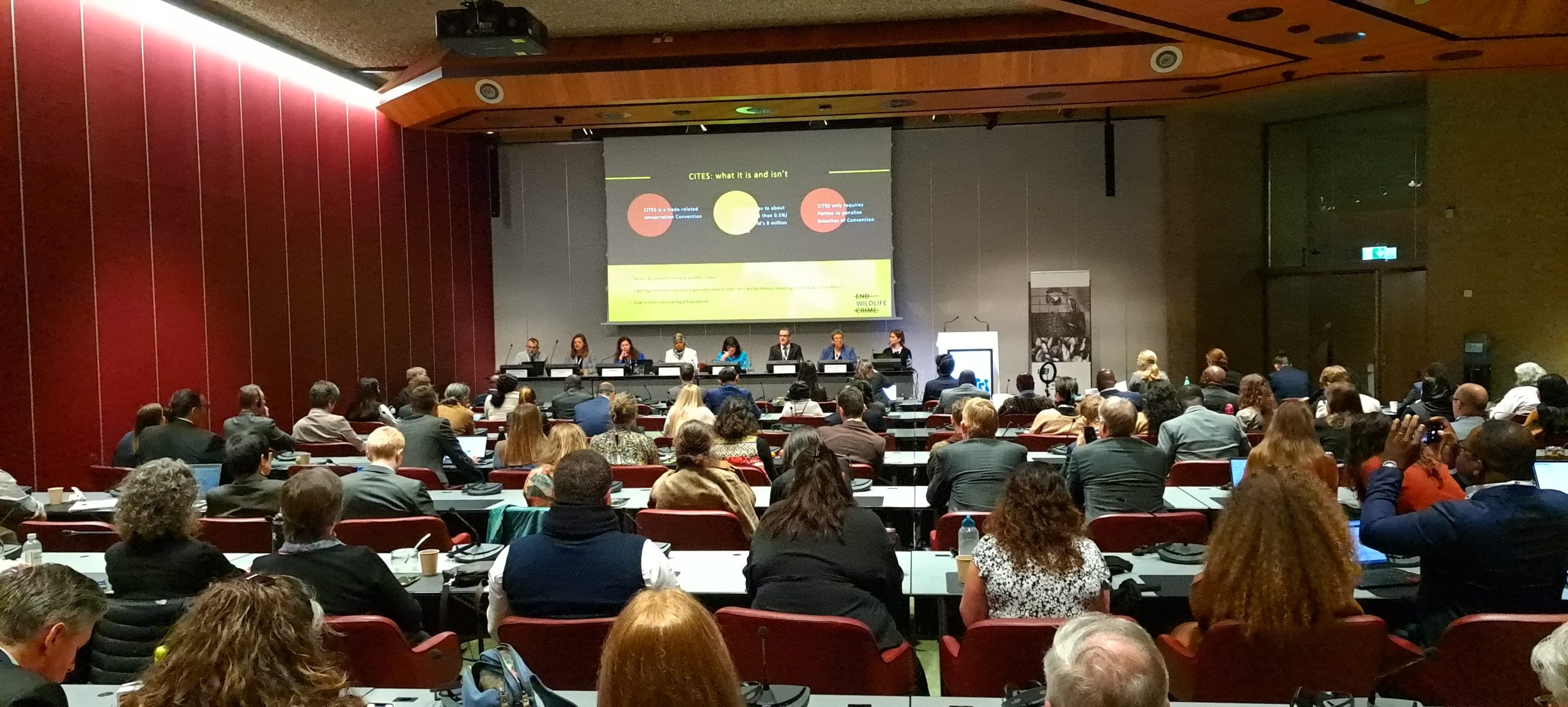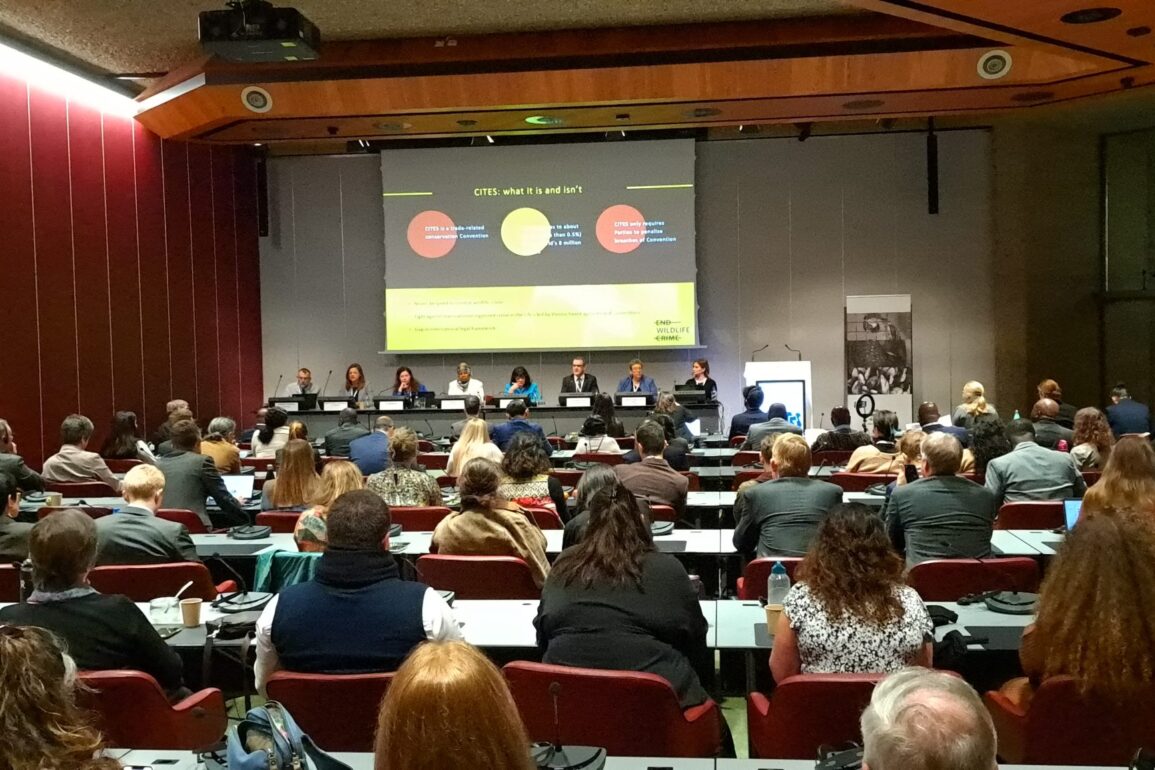On Monday 6th November, Born Free co-hosted an event in the sidelines of the Convention on International Trade in Endangered Species (CITES)’ Standing Committee meeting in Geneva, aimed at persuading the wildlife trade regulating body of the need for a new international agreement to tackle wildlife trafficking.

(c) Sam Inglis
The event was co-hosted by the Governments of Malawi and Peru, the Wildlife Conservation Society, the Wildlife Justice Commission, and the Global Initiative to End Wildlife Crime (of which Born Free is a co-founder and Steering Group member).
High-level officials from the Governments of Angola, the United States, and the European Commission also spoke at the event, which was attended by close to 100 international delegates at the CITES meeting, many of them government officials.
WHAT IS THE CITES STANDING COMMITTEE?
Born Free’s Head of Policy Dr Mark Jones, who spoke at the event, said:
“Wildlife trafficking is a serious, multi-billion-dollar activity involving organised criminal networks working across international borders. It contributes to the decline of species and biodiversity, undermines good governance and the rule of law, and increases the risk of future disease epidemics and pandemics by disrupting and exploiting wild animals and bringing them in close contact with people. Yet there is currently no global agreement focused on tackling this scourge.
“While CITES is really important, it only covers a small proportion of the wild animals and plants found in legal and illegal trade. We are calling for a new agreement, under the auspices of the United Nations Office on Drugs and Crime (UNODC), and specifically its Convention on Transnational Organised Crime, which would place responsibility for tackling the problem within the international criminal justice system where it belongs.”
There was broad agreement among the speakers at the event for the development of an agreement. Mark Jones continued:
“A global agreement could also address the fact that, while many governments protect their indigenous species through their domestic legislation, if those species are not covered by CITES they enjoy little protection once they are removed from their country of origin, since no international regulatory framework exists to regulate or monitor the trade. Such a framework could require governments to criminalise the import and trade in animals and plants taken illegally from their country of origin.”
The event was moderated by Dr Sue Lieberman from the Wildlife Conservation Society. Among the speakers was former Secretary General of CITES John Scanlon who chairs the Global Initiative to End Wildlife Crime.
A recording of the meeting will be made available at www.endwildlifecrime.org in the coming days.
This post was originally published on this site be sure to check out more of their content.









